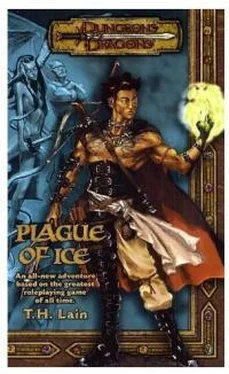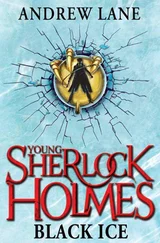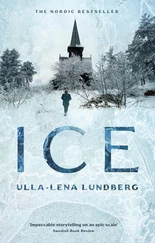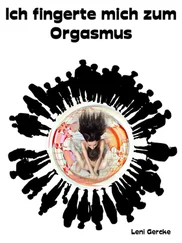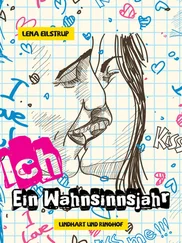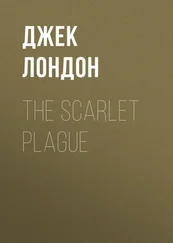T Lain - Plague of Ice
Здесь есть возможность читать онлайн «T Lain - Plague of Ice» весь текст электронной книги совершенно бесплатно (целиком полную версию без сокращений). В некоторых случаях можно слушать аудио, скачать через торрент в формате fb2 и присутствует краткое содержание. Год выпуска: 2003, Жанр: Фэнтези, на английском языке. Описание произведения, (предисловие) а так же отзывы посетителей доступны на портале библиотеки ЛибКат.
- Название:Plague of Ice
- Автор:
- Жанр:
- Год:2003
- ISBN:нет данных
- Рейтинг книги:5 / 5. Голосов: 1
-
Избранное:Добавить в избранное
- Отзывы:
-
Ваша оценка:
- 100
- 1
- 2
- 3
- 4
- 5
Plague of Ice: краткое содержание, описание и аннотация
Предлагаем к чтению аннотацию, описание, краткое содержание или предисловие (зависит от того, что написал сам автор книги «Plague of Ice»). Если вы не нашли необходимую информацию о книге — напишите в комментариях, мы постараемся отыскать её.
Plague of Ice — читать онлайн бесплатно полную книгу (весь текст) целиком
Ниже представлен текст книги, разбитый по страницам. Система сохранения места последней прочитанной страницы, позволяет с удобством читать онлайн бесплатно книгу «Plague of Ice», без необходимости каждый раз заново искать на чём Вы остановились. Поставьте закладку, и сможете в любой момент перейти на страницу, на которой закончили чтение.
Интервал:
Закладка:
“I can only do that in a storm,” Sonja said, “and I wouldn’t have anyway. If we tried to fight the creature now, the dragon would fly right over us, swoop down, and freeze us with its breath before we could touch it. Have you felt a white dragon’s breath? It can freeze your flesh solid, cocoon you in ice. Even a young one can do that. This isn’t the right time. When we face the dragon, we need to do it on our terms, where we’ll stand a chance.”
“But the dragon was flying in the direction of Atupal,” Hennet protested. “If it hadn’t turned, our inaction might have cost lives.”
“If it hadn’t turned, any action would have cost our lives, and then the dragon could have flown on to Atupal anyway,” the druid shot back. “Would that be better?”
If they were a romantic couple, Regdar reflected, they weren’t yet in synch.
As if on cue, the spell expired, and Hennet and Sonja’s spat abated with it. The cold march continued across the snowfields.
Near midday, Hennet and Regdar moved into some brush to set a snare, hoping to catch a few rabbits for their next meal. Lidda and Sonja rested against a rock that sheltered them from the wind and listened to the two men arguing in the distance.
“Isn’t this place,” Lidda asked, “this kind of landscape, like where you come from?”
“In some ways,” Sonja said with a touch of sadness. “If I were to let that part of me come to the fore, I would feel quite at home here. But this is an abomination. It’s unnatural, and that makes it very different from my home.”
“Why did you leave there?” Lidda probed.
Sonja smiled at the halfling, a smile so benevolent that even Lidda felt its attraction. It was no wonder men responded so favorably to Sonja. There was bottomless warmth to her smile, Lidda thought. Such strange beauty—her cheeks registered as much warmth as an ice sculpture. Lidda wondered if Sonja might have some elf blood in her. She knew that in druid communities, race played little part in relationships. Elf heritage would go a long way toward explaining her otherworldly looks and the quiet, unconscious sensuality in her every movement. In that way, Sonja was much like Regdar’s beloved Naull, who had been taken from him only a few months ago.
Lidda had been carefully observing Regdar’s reactions to Sonja. She knew that in his heart he was loyal to Naull and that he believed she still lived somewhere in captivity, but Sonja must seem very appealing to him in his loss. Her most arresting quality was her serenity. Despite the strong, measured passion she displayed, she was an island of peace in all of this chaos. For men of violence, and for Regdar especially, she must seem like shelter from the storm.
“I was fifteen years old before I saw a human being other than my parents,” Sonja explained. “They were members of a druidic circle in one of the great southern forests, but they decided to put the druidic community behind them to pursue unity with nature and their own interests. They resolved to go to the place farthest removed from man that they could find, just the way the great druids of history did. So they departed for the far north.” A faraway smile crossed Sonja’s face as she thought of her birthplace.
“I was born in the shadow of the Endless Glacier, along the ever-white valleys and ridges that surround it, where they made their home. There were wars to fight there too, against the evil frost giants who rule the tundra like tyrants, bringing white dragons and verbeegs and winter wolves and a dozen other races under their control. Mostly my parents just tended to the animals and plants and to the ice itself. In time their skills became attuned to this landscape. They raised me as a druid and taught me those same skills.”
“What happened?” asked Lidda. “Why did you leave?”
“I left when my parents died. It was nothing heroic. The tundra takes its toll even on ice druids. They and I still had relatives in the southlands, farmers and even city-dwellers who never understood their decision to leave. Before they died they made me promise to travel south and visit those relatives and former friends, to explain to them what they had done with their lives and why. Looking back on it now, I think they sent me south because they didn’t want me to live a solitary life in the bitter cold just because they did. They wanted me to see some of the world so that I could choose my own home.”
“What choice will you make?”
“I met my parents’ family,” Sonja went on. “They were warm to me, but they could not understand me. No one can.”
“Not even Hennet?” asked Lidda. Sonja shook her head, smiling sadly.
“So then,” Lidda said, “you intend to return?”
“I intend to,” Sonja replied. “It has been a long time, though. Too long, I feel.” She gestured around her. “All of this is very familiar to me and welcoming. I miss it greatly. I didn’t realize until now how much I missed it, or how my abilities have lain fallow in the south. When I was twelve, I would never have been surprised by orcs concealed under mounds of snow.”
“Where did you meet Hennet?” Lidda continued. “What’s his story?”
“I fear that Hennet’s story changes every time he tells it,” Sonja laughed, and the sound was like sun sparkling on icicles. “In the southlands I discovered something my parents never explained to me. I met men my age and found that they could… satisfy certain needs.”
“Happens to the best of us,” Lidda said with a bawdy wink. “I don’t suppose there was much of that type of action up in the arctic, was there?”
“I should say not,” the druid responded with a smile. “I met him at a ducal ball. Hennet is handsome, dashing. He’s a little…”
“Enamored of himself?” offered Lidda.
“He’s not entirely as charming as he thinks,” Sonja said, “yet that only makes him even more charming, in a sweet way. Someone close to him recently left him, and he was looking for comfort. I was looking for a traveling companion. It was a good fit, convenient for us both. I don’t expect too much of him, and he doesn’t expect too much of me.”
“That simple, is it?” asked Lidda warily.
“Not quite,” Sonja admitted, looking the halfling squarely in the eye. “You and Regdar are born adventurers, and so is Hennet. You’re well suited to this rootless life. If my time with Hennet has taught me one thing, it is that I am not. I’ve learned that staying in one place is very important to me.”
Before Lidda could blurt out another question, Hennet and Regdar returned empty-handed. Lidda was filled with questions, but the conversation would have to wait for later. The wind was increasing slowly but steadily, and stinging ice crystals occasionally whipped around their sheltering rock to bite the halfling’s cheek. She pulled her fur-lined hood tighter around her neck.
“Sonja,” Lidda asked, “can it get much colder than this?” Sonja gazed off at the horizon, barely visible through a stormy, white haze blanketing the formerly blue sky.
“It can,” she said, “and it will.”
3
As the day went on, the sky grew whiter and whiter and the wind more chill. Hennet watched the horizon vanish and the last patch of blue disappear from the sky and wondered for an awful moment if they’d ever see sun or sky again. Then the snow came, gently at first, ethereal snowflakes that Lidda liked to catch on her tongue, followed by a steady fall of fat flakes that impeded visibility. Regdar and Hennet hunted for food on the march, hoping to stretch their rations while hunting was still possible, but they could not manage any catches. Sonja solved this. She stood still and closed her eyes, and in time a furry, brown rabbit hopped out of a gully toward her. Lidda cooed over it as it poked its head up and wiggled its pink nose. Sonja took it in her hands and calmly snapped its neck.
Читать дальшеИнтервал:
Закладка:
Похожие книги на «Plague of Ice»
Представляем Вашему вниманию похожие книги на «Plague of Ice» списком для выбора. Мы отобрали схожую по названию и смыслу литературу в надежде предоставить читателям больше вариантов отыскать новые, интересные, ещё непрочитанные произведения.
Обсуждение, отзывы о книге «Plague of Ice» и просто собственные мнения читателей. Оставьте ваши комментарии, напишите, что Вы думаете о произведении, его смысле или главных героях. Укажите что конкретно понравилось, а что нет, и почему Вы так считаете.
